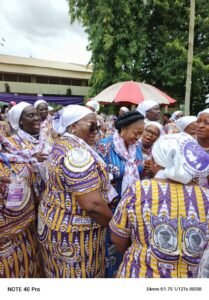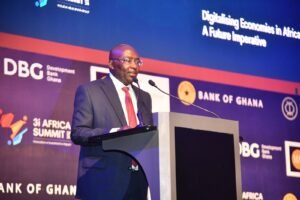
Cover page of Kwamena Ahwoi's 'Working with Rawlings'
To buttress the point that the opposition National Democratic Congress (NDC) is a party born out of violence, Professor Kwamena Ahwoi, in his controversial book ‘Working with Rawlings’, has stated that the party’s founder, former President Jerry John Rawlings, during his time as president, instituted what he calls ‘Democratisation of Violence’.
According to Prof Ahwoi, Mr Rawlings’ populist language’ of “Ghana people make we wake up make we fight for our rights; we no go sit down make them cheat we every day” emboldened some loyalists of the Provisional National Defence Council (PNDC) to unleash atrocities on innocent Ghanaians without fear.
He adds that it was in line with this that Mr Rawlings created groups such as the People’s Defence Committees (PDCs) and the Workers Defence Committees (WDCs), a group of ordinary citizens who were empowered to rebel against constituted authority in their communities and workplaces.
“Ordinary people were organised into Peoples Militia and Commandos, trained in the use of weaponry and put under arms in a system known as the ‘democratisation of violence’. The expectation was that a time would come when the ideological struggle would compel the revolutionary forces to defend ourselves against ‘them’,” Prof Ahwoi states in page 215 of the book that is now at the centre of confusion and controversy in the opposition NDC.
NDC, a violent party
Prof Ahwoi’s revelation seems to give flesh to the statement made by former President John Mahama that the NDC is the most violent political party in country.
Addressing a group of NDC supporters in the Volta Region in February 2019, Mr Mahama said: “I want to sound a caution that NDC has a revolutionary root, and when it comes to unleashing violence, no one can beat us to that”.
He further warned: “We are not going to joke in 2020 and I’m sounding a warning to the NPP – we are going to match them boot for boot.”
“We respect the constitution of this country and the NDC is a democratic party, and that’s why we abide by the rules of the constitution. But the same constitution says that Ghanaians should resist anybody who attempts to subvert the constitution… And we have a right to resist you,” he added.
Firebrand, populist, confused
Meanwhile, Prof Ahwoi has also described NDC Founder Flt Lt JJ Rawlings as a “firebrand populist”, and a “confused” man who did not understand political ideology and did not know his stand when it comes to same.
“The man Rawlings is a very complicated and complex character. At first sight he would appear to be to the political left but close analysis of his thought processes, his desires, his actions and his performance as Head of State of Ghana, first as Chairman of the PNDC and as a two-term President of the First and Second governments of the Fourth Republic cast some doubts on this characterisation.
“My own impression is that Rawlings could not be bothered about the theoretical underpinnings of leftist ideology,” he states.
Prof Ahwoi further states that, not believing in leftist ideology, the “crafty” Rawlings rode on the back of “leftist rhetoric” to achieve his childhood ambition.
“Rawlings started his political life as a firebrand populist who rode on the back of leftist rhetoric to achieve what was obviously his ambition to be Head of State, an ambition that he always denied he had,” he states at page 214 of the book.
According to Prof Ahwoi, while riding on the back of leftist rhetoric, “the populist Rawlings” did not take any hard line against the Bretton Woods institutions or, for that matter, institutions that align to the West capitalism.
“As explained earlier, he had never really taken an ideological position. It appeared that all along, what he was looking for was what was in the best interest of Ghana,” he writes, adding that Mr Rawlings, after riding on the back of the leftist rhetoric, made a “180 degree turn both economically and politically”.
“Economically, there was a full-scale rapprochement with the West and the Bretton-Woods institutions. Politically, there was an abandonment of the revolutionary Defence Committee and a return to the structures of Western Democratic governance,” the book stated.


